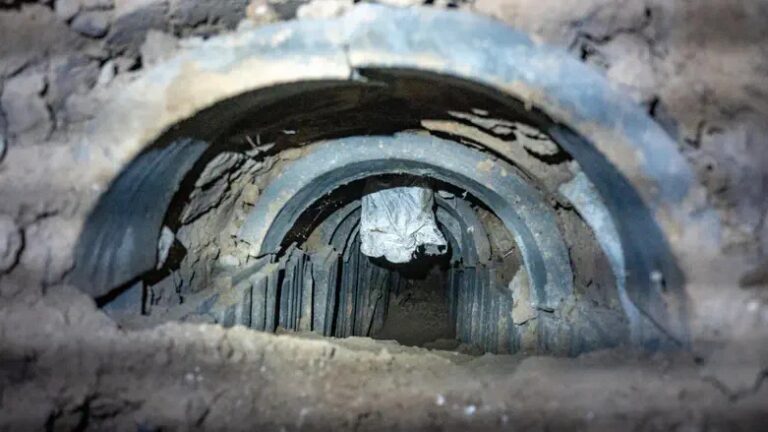 The U.S. is poised to suspend another major weapons shipment to Egypt amid deep divisions within the Obama administration over whether to cut off aid to the military-backed government. The debate mirrors similar disagreements over intervening in Syria, where there are new reports that chemical weapons have been used by the government.
The U.S. is poised to suspend another major weapons shipment to Egypt amid deep divisions within the Obama administration over whether to cut off aid to the military-backed government. The debate mirrors similar disagreements over intervening in Syria, where there are new reports that chemical weapons have been used by the government.
Factions within the administration line up largely along two fronts: those who want the U.S. to take more decisive action to counter widespread violence in both Egypt and Syria, and senior military and some diplomatic leaders who are arguing for moderation.
The lack of a unified position — both within the administration and on Capitol Hill — is giving Obama time and space for his cautious approach. But it also poses a moral question: How far should the U.S. go to stop violence against civilians when its actions could drag America into the war in Syria or damage U.S. relations with Egypt — and undermine the Egypt-Israel peace accord.
The next military weapons shipments for Egypt are scheduled for next month — including 10 Apache helicopters at a cost of about $500 million. Also scheduled for delivery are a number of M1A1 tank kits, including machine guns and other equipment used with the tanks, as well as some used missiles. The missiles, which have been moved and handled, but not yet fired, could be used for spare parts by the Egyptian military or they could be refurbished and fired.
According to senior U.S. officials, however, the administration is expected to delay the delivery of Apache helicopters. That move, which may not come until next week, would be the second major weapons sale put on hold by the U.S. in an effort to pressure the Egyptian military to halt bloodshed and take steps toward a more peaceful transition to democracy.
The officials spoke on condition of anonymity because they were not authorized to discuss the matter publicly
The Pentagon has argued for pragmatism in the U.S. response to Egypt. Defense officials say cutting off aid would threaten key national security agreements and could rattle the peace between Egypt and Israel. Pentagon leaders, including Defense Secretary Chuck Hagel and Gen. Martin Dempsey, chairman of the Joint Chiefs of Staff, say that would rob the U.S. of any continuing leverage, and also risk agreements that give America access to the Suez Canal and allow military flights over Egypt.
Even as officials continue to review aid to Egypt, the U.S. military has continued shipments of thousands of spare parts for American weapons systems used by the Egyptian forces, including armored bulldozers for border security, radars and missiles.
Meanwhile, the latest concerns about chemical weapons in Syria prompted a 90-minute meeting of the U.S. national security team. Secretary of State John Kerry, who is on vacation, attended via video teleconference and made a flurry of telephone calls to world leaders to discuss the unrelenting bloodshed in Syria.
So far, the U.S. response on both Egypt and Syria has been measured. That cautious approach is riling those who believe America should take immediate action against actions by Egypt’s military and Syrian President Bashar Assad’s government.
To express displeasure about the Egyptian crackdown on demonstrators calling for the reinstatement of ousted President Mohammed Morsi, the U.S. suspended the delivery of four F-16 fighter jets to Egypt and canceled biennial U.S.-Egyptian military exercises planned for next month. Obama has said that America’s long-term cooperation with Egypt “cannot continue as usual.”
On Syria, the United States said in June that it had conclusive evidence that Assad’s government had used chemical weapons against opposition forces. That crossed what Obama had called a “red line” and prompted a U.S. decision to send arms to Syrian rebels, including guns, ammunition and shoulder-fired, anti-tank grenades.
State Department spokeswoman Jen Psaki said between 1,000 to 1,800 people were killed in the latest alleged chemical weapons attack near Damascus. She said Obama had directed the U.S. intelligence community to urgently gather additional information but that “at this time right now, we are unable to conclusively determine chemical weapons use.”
“The red line is the use of chemical weapons,” she said. “That was crossed a couple of months ago. … If these reports are true, it would be an outrageous and flagrant escalation of use of chemical weapons by the regime.”
She said Kerry had spoken on the phone with Syrian National Coalition chief, Ahmad al-Jarba, to express U.S. condolences to the Syrian people, to U.N. Secretary-General Ban Ki-moon and to other foreign officials.
French Foreign Minister Laurent Fabius on Tuesday raised the possibility of the international community using force. Turkish Foreign Minister Ahmet Davutoglu said at a news conference in Berlin, “Several red lines have been crossed — if sanctions are not imposed immediately, then we will lose our power to deter.”
Sen. John McCain, R-Ariz., a leading advocate of a more aggressive U.S. response to the events in Syria, said on CNN that “If (Assad) feels there’s not going to be any retaliation,” he would see that “the word of the president of the United States can no longer be taken seriously.”
So far, top military leaders have cautioned against even limited action in Syria.
Dempsey, the Joint Chiefs chairman, said in a letter this week to a congressman that the U.S. military is clearly capable of taking out Assad’s air force and shifting the balance of the war toward the armed opposition. But such an approach would plunge the U.S. into the war without offering any strategy for ending what has become a sectarian fight, he said.
But Congress is divided.
The GOP is split between hawks such as McCain and tea party isolationists including Sens. Rand Paul of Kentucky and Ted Cruz of Texas. In between there is no clear picture either, with moderates such as Sen. Bob Corker of Tennessee voicing opposition to a U.S.-enforced no-fly zone while others say it is time to act.
On Egypt, the picture is even murkier. Paul, Cruz and 11 other senators voted to halt all U.S. aid to military leaders last month, but were defeated as a majority of Republicans and all Democrats backed continued assistance. Many in both parties stressed the importance of maintaining U.S. leverage and supporting Israel’s security. Since then, however, McCain and some others have switched sides, saying U.S. funds now should be suspended given the harshness of the Egyptian government’s crackdown on Islamist opponents.
Among Democrats, Sens. Patrick Leahy of Vermont and Carl Levin of Michigan believe U.S. law compels a halt in aid to Egypt until democracy is restored. Most of their colleagues disagree. And on Syria, some in Obama’s party see the president wading dangerously toward war by authorizing weapons deliveries to the rebels, while liberal hawks and humanitarian interventionists believe he is doing far too little.
(AP)











One Response
They shud but out. Helping the brotherhood will not have positive. Results so let them get killed